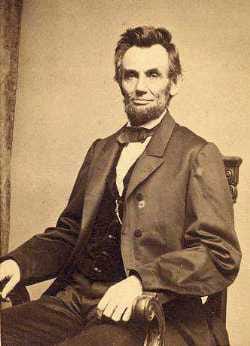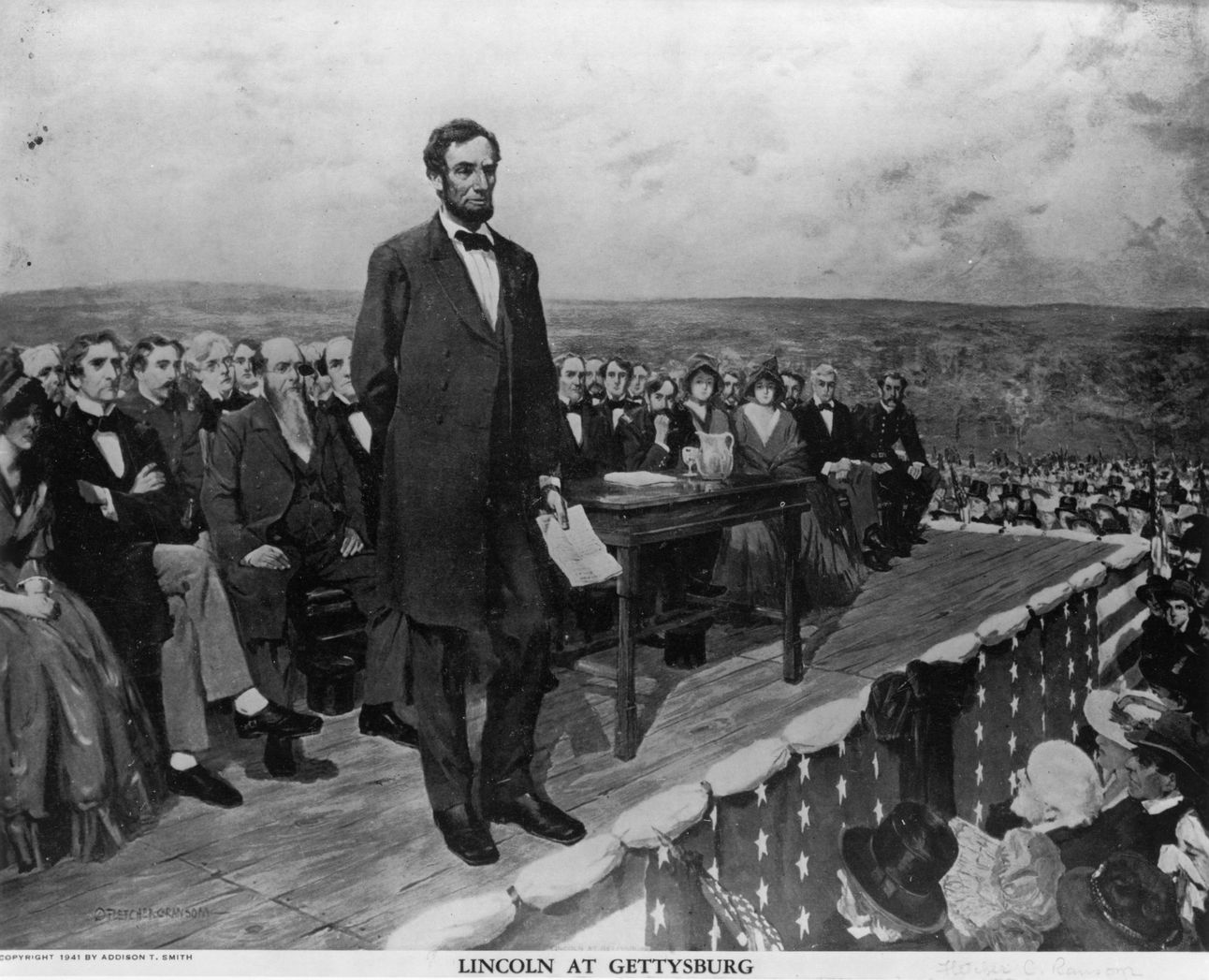Abraham Lincoln
16th President of the United States
.webp)
Abraham Lincoln
Born in a one-room log cabin in Kentucky, Abraham Lincoln's early life was marked by poverty and hardship. His family moved frequently, settling in Indiana when he was seven. Lincoln's formal education was limited - less than a year in total. But he was driven to learn.

"I will study and get ready, and perhaps my chance will come," Lincoln said.
This determination set him apart. He devoured books, often walking miles to borrow them. He taught himself law by reading Blackstone's Commentaries. Lincoln's work ethic was legendary. He split rails, clerked in a store, and piloted a flatboat down the Mississippi.
The pivotal moment came when Lincoln entered politics. He saw an opportunity to make a difference. The issue of slavery was tearing the nation apart. Lincoln opposed its expansion into new territories.
"A house divided against itself cannot stand," he famously declared.
But Lincoln's path to the presidency was far from smooth. He lost more elections than he won early on. His 1858 Senate campaign against Stephen Douglas ended in defeat. Lincoln faced personal tragedies too. His first love, Ann Rutledge, died young. He struggled with depression throughout his life.
Yet Lincoln persevered. His debates with Douglas, though unsuccessful, gained him national attention. In 1860, he secured the Republican nomination for president. Lincoln won with just 40% of the popular vote. The country was on the brink of civil war.
"I am now the most miserable man living," Lincoln confided to a friend. "If what I feel were equally distributed to the whole human family, there would not be one cheerful face on the earth."
The Civil War tested Lincoln like nothing else. He faced military setbacks, cabinet infighting, and fierce criticism. The Emancipation Proclamation was a huge gamble. But Lincoln's leadership held the Union together. His Gettysburg Address redefined the nation's purpose.
"That this nation, under God, shall have a new birth of freedom," he proclaimed.
Lincoln's re-election in 1864 seemed unlikely. But military victories turned the tide. The war's end was in sight when Lincoln delivered his Second Inaugural Address. It's considered one of the greatest speeches in American history.

"With malice toward none, with charity for all," Lincoln urged reconciliation.
Tragically, Lincoln didn't live to see the full fruits of his labor. He was assassinated just days after the war's end. But his legacy endures. Lincoln preserved the Union and ended slavery. He expanded presidential power and modernized the economy.
From rail-splitter to president, Lincoln's journey embodies the American dream. His story proves that determination, integrity, and resilience can overcome the humblest beginnings. Lincoln's words still resonate today:
"I'm a success today because I had a friend who believed in me and I didn't have the heart to let him down."
Lessons
Lesson 1: Embrace failure as a stepping stone. Lincoln's first business venture, a general store, failed miserably. He had countless failures in politics. And even relationships. But he didn't let it define him. He used it as a learning experience. "My great concern is not whether you have failed, but whether you are content with your failure," he said.
Lesson 2: Build a team of rivals. Lincoln famously appointed his political opponents to his cabinet. He believed in surrounding himself with diverse perspectives. "I don't like that man. I must get to know him better," he once remarked. This approach can be powerful in business too. Hire people who challenge you. It might be uncomfortable, but it'll lead to better decisions and creativity.
Lesson 3: Write hot letters, but don't send them. Lincoln had a habit of writing angry letters when he was upset. But he didn't mail them. He'd cool off and write a more measured response later. This is brilliant. When you're mad at someone, write it all out. Then delete it. You'll feel better and avoid burning bridges.
Lesson 4: Get out of your office. Lincoln spent 75% of his day meeting with people. He had an open-door policy as President. You might think being busy means staying at your desk. Wrong. Real leaders circulate. They talk to everyone. From the janitor to the CEO. Information is power. And you get the best info face-to-face.
Lesson 5: Use humor as a tool. Lincoln was known for his jokes and stories. Even during the darkest days of the Civil War. It wasn't just for fun. Humor was his way to diffuse tension. To make a point without being harsh. To connect with people. As Lincoln said, "With the fearful strain that is on me night and day, if I did not laugh I should die."
Abraham Lincoln Quotes
On resilience: "I am a slow walker, but I never walk back."
On enemies: "Do I not destroy my enemies when I make them my friends?"
On problem-solving: "I use not only all the brains I have, but all I can borrow."
On effective action: "Give me six hours to chop down a tree and I will spend the first four sharpening the axe."
On reputation: "Character is like a tree and reputation like a shadow. The shadow is what we think of it; the tree is the real thing."
On failure: "My great concern is not whether you have failed, but whether you are content with your failure."
On the future: "The best way to predict your future is to create it."
On perseverance: "The probability that we may fail in the struggle ought not to deter us from the support of a cause we believe to be just."
Speeches
- Lincoln Speeches - Lincoln Home National Historic Site
- The Gettysburg Address
- The Gettysburg Address by Abraham Lincoln
Book Recommendations
- Best Books About Abraham Lincoln - Goodreads
- Team of Rivals: The Political Genius of Abraham Lincoln by Doris Kearns Goodwin
- Abraham Lincoln: A Life by Michael Burlingame
- Lincoln by David Herbert Donald
- A. Lincoln: A Biography by Ronald C. White Jr.
- Lincoln's Melancholy: How Depression Challenged a President and Fueled His Greatness by Joshua Wolf Shenk
.png)
.webp)
.webp)
.webp)
.webp)
.webp)
.webp)
.png)